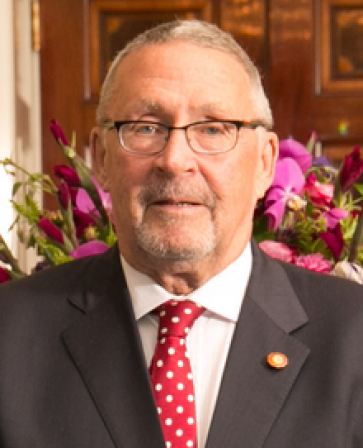Africa may soon have its first white president since the fall of apartheid
Zambia may soon have a white president in the form of Guy Scott, deputy to the incumbent but ailing Michael Sata. As The Economist reports, Zambians are less churlish about race than their southern neighbours. Scott has won widespread admiration for tackling the banks over high interest charges, and has campaigned on other thorny social issues.
The 77-year-old had collapsed in his hotel suite on September 25th and was treated by doctors sent by the American government. He had rarely appeared in public in recent months. When he addressed the Zambian parliament earlier in September he joked, “I am not dead,” and then left without delivering his speech.
Under the Zambian constitution, if Mr Sata becomes unfit to work he will be replaced by his vice-president, Guy Scott, pending a new election to be held within 90 days. If so, Mr Scott would be the first white man to head an African state since the end of apartheid in South Africa two decades ago. What is more remarkable is that few Zambians seem concerned—a marked contrast from neighbouring South Africa or Zimbabwe, where politics is still riven by questions of race and colonialism.
The Cambridge-educated economist is the only one of about 40,000 white Zambians to make it to the higher echelons of politics. Born in Livingstone, the 70-year-old is the son of white Anglo-Scots who arrived before independence. He has been a popular MP, like his father, Alec, who campaigned against colonial rule. The younger Mr Scott was lauded as agriculture minister in the 1990s. As vice-president since 2011, he and the man he calls “the boss” have steered a sensible course, keeping the economy growing at about 6% a year. The government welcomed white farmers expropriated in Zimbabwe. Having campaigned against Chinese dominance in industry, the government has made its peace with Asian business partners.
Last year a leader of the opposition, Hakainde Hichilema, called Mr Scott the “most stupid white man” he had ever met. But that was mild by the combative standards of Zambian politics. Mr Scott has won friends with his outspokenness. He castigates banks for charging 25% annual interest on small loans and describes going to an all-white boarding school in Zimbabwe as “being in the Hitler Youth”.
Some Zambian commentators say that Mr Scott is already acting as president, given Mr Sata’s ill health. He travels around in a helicopter and two motorcades, one for the city and one for the bush. When George W. Bush, the former American president, passed through Zambia two years ago and was introduced to the vice-president, “he thought they were kidding,” says Mr Scott. At regional summits his fellow African leaders are sometimes baffled. “I think they regard me as a sort of mascot, a good-luck charm,” Mr Scott told one interviewer. Asked about his boss, he said: “He says things like, ‘What would you be if you weren’t white?’ I said, ‘The president.’” His joke may soon be tested.
















